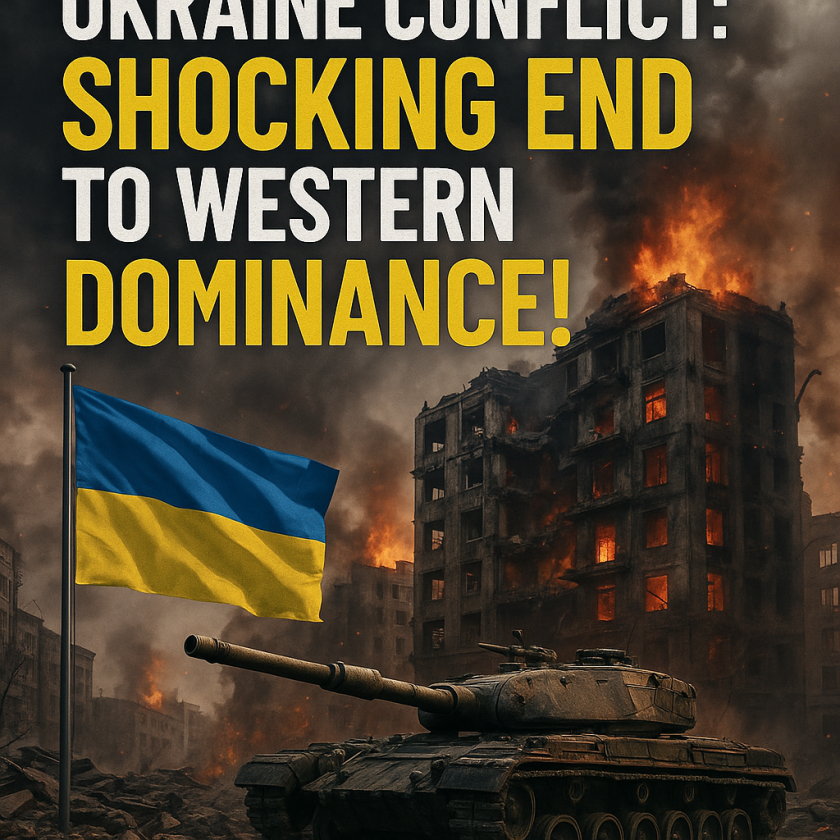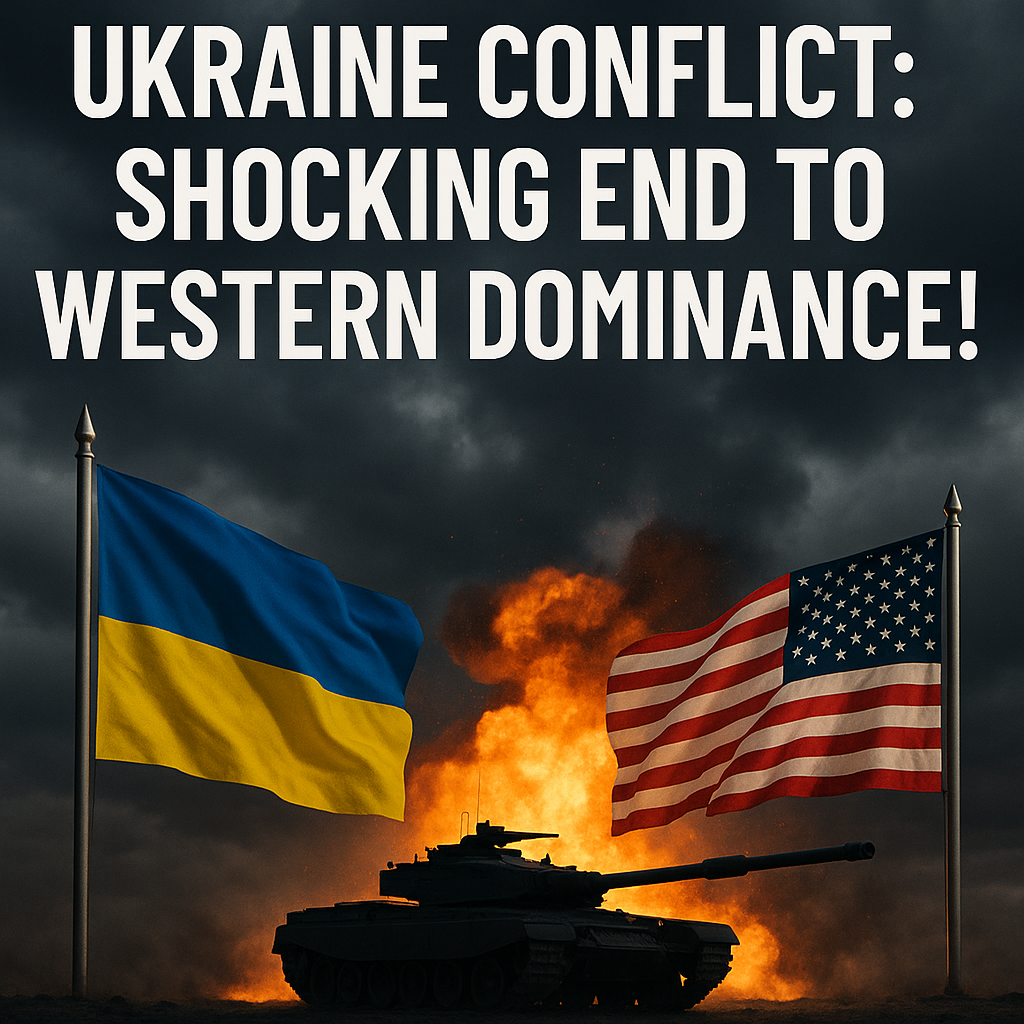Ukraine Conflict: Shocking End to Western Dominance!
Ukraine Conflict: Shocking End to Western Dominance?
The ongoing Ukraine conflict has ignited debates surrounding the power dynamics between Western nations and their influence on global politics. As various news outlets report on the shifting landscape, it becomes increasingly clear that the implications of this conflict stretch far beyond the borders of Ukraine. In examining the events, it’s essential to decode the narrative surrounding what some are calling an end to Western dominance in international affairs.
The Geopolitical Shifts Highlighted by the Ukraine Conflict

The conflict in Ukraine, which began in 2014 and escalated with Russia’s full-scale invasion in 2022, has prompted Western countries to rally against perceived aggression. However, this situation has also unveiled cracks in what was once a consensus around Western supremacy. In analyzing various reports, conflicting viewpoints emerge concerning the long-term consequences of this conflict on global power dynamics.
Erosion of Western Influence
One of the most prominent narratives is the erosion of Western influence, particularly in light of responses from countries outside the NATO alliance. For instance, nations like China and India have maintained a more neutral stance, choosing not to engage actively in the conflict or impose sanctions on Russia. Reports from outlets like Al Jazeera illustrate how this game’s rules are shifting, suggesting that emerging powers may be less swayed by Western rhetoric and more focused on their national interests.
– Economic Factors: The imposition of sanctions on Russia by the U.S. and EU has sparked discussions about the vulnerability of global economies tied to Western policies. With rising energy prices and inflation impacting daily life across Europe and beyond, some argue this might lead to a reconsideration of dependence on Western economic frameworks.
– Military Capabilities: Some analysts point out that the West’s military support for Ukraine, while significant, might not be enough to ensure a decisive victory. Reports insinuate that growing military engagements in other regions might deplete resources, leading to questions about NATO’s ability to project power effectively in the long term.
Russia’s Strategic Maneuvering
Tied intricately to the narrative of Western decline is Russia’s strategic positioning. With a focus on alliances with countries traditionally held at arm’s length from Western influence, Russia has been actively fostering relationships with China, Iran, and other non-Western states. This pivot demonstrates an effort to create an alternative bloc to counterbalance Western alliances.
– Diplomatic Efforts: Russia’s outreach to non-Western nations showcases its intent to redefine global alliances. The Russian government has framed its actions as a rejection of Western hegemony, appealing to other nations who may feel marginalized by Western policies.
– Military Operations: As reported by Sky News, Russian military strategies have adapted in response to the West’s involvement, demonstrating an ability to exploit weaknesses in supply chains and logistics that are endemic to Western military strategies.
A More Multipolar World?
Critically evaluating these developments suggests that the Ukraine conflict may indeed signify a shift towards a more multipolar world. This is not merely about the end of Western dominance but is indicative of a reconfiguration of global alliances and spheres of influence. While there’s no clear “winner” in the current landscape, it seems evident that power dynamics are evolving:
– Emerging Markets: Countries like Brazil and South Africa are exploring their roles, indicating a desire to boost their presence on the world stage. This interest in playing a more significant role in global politics reflects a broader desire among many nations to seek alternatives to a unipolar order dominated by the West.
– Global South Perspective: The Global South, particularly regions that have historically been more aligned with the West, has started to show a more complex view of international affairs. Many nations are now prioritizing their sovereignty and economic interests over aligning blindly with Western powers.
Conclusion: A Complex Future Awaits
While narratives abound regarding a shocking end to Western dominance, the actual outcome may be far more complex. As the Ukraine conflict endures, the balance of power in international relations is likely to tilt in multiple directions, fostering an environment ripe for reevaluation of alliances.
In summary, rather than a clear-cut conclusion regarding Western influence, we witness a tumultuous landscape in international relations where emerging voices seek to assert themselves. This momentous period may serve as a wake-up call for both Western powers and their global counterparts to reassess their foundational beliefs and strategies moving forward. Understanding that the dynamics of power are in flux can provide a more nuanced perspective on current events and the future of global governance. The path ahead is fraught with uncertainty, but the discussions initiated by the Ukraine conflict might very well lay the groundwork for a new era in international politics.




































